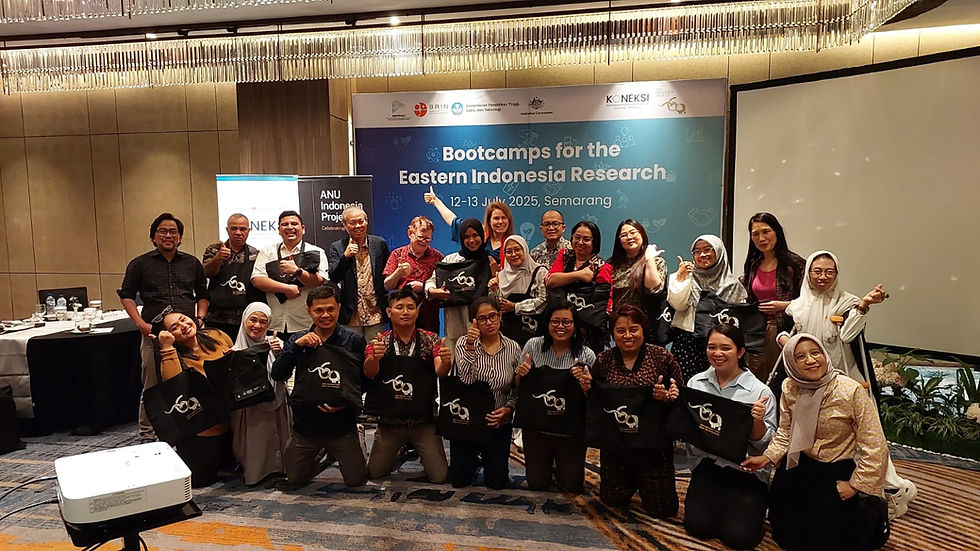COVID-19 during Pregnancy: Recognize the Risk of COVID-19 in Pregnant Women
- admin
- Jan 15, 2021
- 4 min read

COVID-19 pandemic is still a concern for everyone, including vulnerable groups such as pregnant women. The concern arises about the possible impact on maternal health and fetal development if exposed to and infected with the coronavirus (SARS-CoV-2). There are changes in the immune system that make pregnant women more susceptible to infection with the SARS-CoV-2 virus during pregnancy.
The importance of recognizing the early signs and symptoms of COVID-19 transmission is a step that every mother must understand to minimize the manifestations of risk arising from this viral infection. Several studies have shown that pregnant women with COVID-19 are less likely to develop certain symptoms such as fever and muscle aches than women who are not pregnant. The severity of symptoms of COVID-19 in pregnant women can be influenced by several risk factors including older pregnant women, over nutritional status, and comorbidities such as diabetes and hypertension.
The impact of COVID-19 infection on pregnant women has been revealed from several research results, although it is not yet clear what impact it has on the health of newborns. Based on research results, several things that have been known include pregnant women with COVID-19 at risk of giving birth to premature babies. The likelihood of a newborn being infected with COVID-19 from its mother is only 2% to 5%. Research also reveals that maternal mortality due to COVID-19 only occurs in women with comorbidities and that more deaths in infants are caused by premature conditions.
Exposure to and infection with COVID-19 in pregnant women can also have an impact on the psychological side of the mother. Pregnant women who are confirmed positive for COVID-19 are prone to experiencing stressful times and feeling anxious about their health, their unborn baby, and the people around them. According to Moralez et al in the Journal of Psychiatry Research, pregnant women experience a progressive increase in anxiety and depression during the pandemic. This anxiety comes from many thoughts about preserving the pregnancy, the birth process, and the babysitting process during the pandemic. Besides, the conditions that require the mother to physically isolate the mother will be more saturated and stressed. This condition if it continues can have an impact on the fetus it is carrying. Depressed mothers are more likely to have babies with low birth weight and prematurity.
To reduce this condition, mothers can do several things including implementing a healthy lifestyle while at home, such as doing light exercise, applying the principles of balanced nutrition, getting enough fluids, and getting enough sleep. Besides, interacting with family and closest friends online can help mothers stay motivated and stay positive.
Therefore, the implementation of health protocols by pregnant women must still be done. Some preventive efforts to reduce the risk of contracting COVID-19 that can be done include: limiting close contact with people who are sick or have symptoms of COVID-19, wearing a mask when outside the home, regularly washing hands with soap for at least 20 seconds, or using a hand sanitizer with an alcohol content of at least 60%, and consume foods with balanced nutrition.
In addition to these preventive efforts, pregnant women are advised to take a COVID-19 test at the beginning of the first trimester of pregnancy and in the final trimester, which is about one to two weeks before delivery. This is done to detect any exposure to or viral infection in pregnant women and those who are about to give birth to prevent the risk of transmission of the virus. Also, pregnant women are still advised to make regular pregnancy visits to health workers to monitor the health of the mother and fetus.
Summit Institute for Development (SID) as a non-profit organization that focuses on improving maternal and child health is committed to playing an active role in ensuring that pregnant women receive comprehensive care during pregnancy and after childbirth, especially during the COVID-19 pandemic. Efforts are being made to include the use of the OpenSRP digital platform that can help frontline health workers provide integrated services, as well as to conduct an assessment of the impact of COVID-19 on prenatal care and pregnancy outcomes.
Reference:
– Alberca R, Pereira N, Oliveira L, Gozzi-Silva S, Sato M. Pregnancy, Viral Infection, and COVID-19. Frontiers in Immunology. 2020;11
-Gold K, Marcus S. Effect of maternal mental illness on pregnancy outcomes. Expert Review of Obstetrics & Gynecology. 2008;3(3):391-401
-Hessami K, Homayoon N, Hashemi A, Vafaei H, Kasraeian M, Asadi N. COVID-19, and maternal, fetal and neonatal mortality: a systematic review. The Journal of Maternal-Fetal & Neonatal Medicine. 2020;:1-6
-López-Morales H, del Valle M, Canet-Juric L, Andrés M, Galli J, Poó F et al. Mental health of pregnant women during the COVID-19 pandemic: A longitudinal study. Psychiatry Research. 2021;295:113567
-Mayo Clinic. How COVID-19 (coronavirus) affects babies and children [Internet]. Mayo Clinic. 2021 [cited 13 January 2021]. Available from: https://www.mayoclinic.org/coronavirus-in-babies-and-children/art-20484405
-WHO. Coronavirus disease (COVID-19): Pregnancy and childbirth [Internet]. WHO.int. 2021 [cited 13 January 2021]. Available from: https://www.who.int/news-room/q-a-detail/coronavirus-disease-covid-19-pregnancy-and-childbirth
-WHO. Increasing understanding of the impact of COVID-19 on pregnant women and their babies [Internet]. WHO.int. 2021 [cited 13 January 2021]. Available from: https://www.who.int/news/item/01-09-2020-new-research-helps-to-increase-understanding-of-the-impact-of-covid-19-for-pregnant-women-and-their-babies





Comments